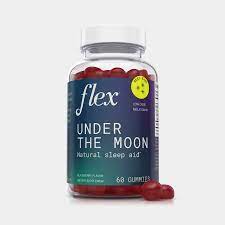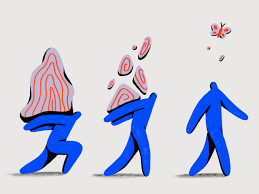The Power of Natural Sleep Aids Without Melatonin
Struggling with sleep issues can be a frustrating and exhausting experience. While melatonin supplements are a popular choice for improving sleep quality, some individuals may prefer to explore natural alternatives. Fortunately, there are effective natural sleep aids that can help you achieve restful and rejuvenating sleep without relying on melatonin.
Lavender Essential Oil
Lavender essential oil is well-known for its calming and relaxing properties. By diffusing lavender oil in your bedroom or applying it to your pulse points before bedtime, you can create a soothing environment that promotes better sleep. The gentle aroma of lavender can help reduce stress and anxiety, allowing you to unwind and drift off to sleep more easily.
Valerian Root
Valerian root is a herb that has been used for centuries as a natural remedy for insomnia and sleep disturbances. It is believed to promote relaxation, reduce the time it takes to fall asleep, and improve overall sleep quality. Valerian root can be consumed in the form of tea or capsules, offering a gentle yet effective solution for those seeking natural sleep support.
Chamomile Tea
Chamomile tea is another popular natural remedy for promoting relaxation and improving sleep. This herbal tea contains compounds that have sedative effects, helping to calm the mind and body before bedtime. Enjoying a warm cup of chamomile tea in the evening can signal to your body that it’s time to unwind and prepare for restful slumber.
Magnesium Supplements
Magnesium is an essential mineral that plays a key role in promoting relaxation and supporting healthy sleep patterns. Many individuals may be deficient in magnesium, which can contribute to insomnia and other sleep disturbances. Taking magnesium supplements before bed can help relax muscles, calm the nervous system, and enhance overall sleep quality.
By incorporating these natural sleep aids into your bedtime routine, you can support healthy sleep patterns without relying on melatonin supplements. Experiment with different options to find what works best for you and enjoy the benefits of restorative and rejuvenating sleep naturally.
7 Melatonin-Free Natural Sleep Aids: Alternatives for Better Slumber
- What are some natural alternatives to melatonin for improving sleep?
- How can lavender essential oil help with sleep?
- Is valerian root an effective natural remedy for insomnia?
- What are the benefits of chamomile tea for promoting relaxation and sleep?
- Can magnesium supplements support healthy sleep patterns?
- Are there any side effects associated with using natural sleep aids without melatonin?
- How do I determine the right dosage or form of natural sleep aid to use?
What are some natural alternatives to melatonin for improving sleep?
When seeking natural alternatives to melatonin for improving sleep, there are several effective options to consider. Lavender essential oil, known for its calming properties, can be diffused or applied topically to promote relaxation before bedtime. Valerian root, a traditional herb used for insomnia, can help reduce the time it takes to fall asleep and enhance sleep quality. Chamomile tea, with its soothing effects, is a popular choice for calming the mind and preparing the body for restful slumber. Additionally, magnesium supplements play a crucial role in supporting relaxation and healthy sleep patterns by helping to relax muscles and calm the nervous system. Experimenting with these natural alternatives can offer individuals a variety of choices to improve their sleep without relying on melatonin supplements.
How can lavender essential oil help with sleep?
Lavender essential oil is a popular natural sleep aid known for its calming and relaxing properties. When used before bedtime, lavender essential oil can help create a soothing environment that promotes better sleep. The gentle aroma of lavender has been shown to reduce stress and anxiety, allowing individuals to unwind and prepare for restful slumber. By diffusing lavender oil in the bedroom or applying it to pulse points, individuals can experience a sense of tranquility that can enhance their overall sleep quality. Incorporating lavender essential oil into a bedtime routine is a simple yet effective way to support healthy sleep patterns without the use of melatonin supplements.
Is valerian root an effective natural remedy for insomnia?
Valerian root is widely regarded as an effective natural remedy for insomnia. With its long history of use dating back centuries, valerian root has gained popularity for its ability to promote relaxation, reduce the time it takes to fall asleep, and improve overall sleep quality. Many individuals find that consuming valerian root in the form of tea or capsules can help them achieve a more restful and rejuvenating night’s sleep. Its calming properties make it a valuable option for those seeking a natural alternative to address sleep disturbances and insomnia.
What are the benefits of chamomile tea for promoting relaxation and sleep?
Chamomile tea offers a range of benefits for promoting relaxation and improving sleep quality. Known for its calming properties, chamomile contains compounds that act as natural sedatives, helping to reduce stress and anxiety levels. By soothing the mind and body, chamomile tea can promote a sense of calmness and relaxation, making it easier to unwind before bedtime. Additionally, chamomile tea may help to alleviate muscle tension and digestive discomfort, further enhancing its ability to support restful sleep. Incorporating chamomile tea into your evening routine can be a gentle yet effective way to promote relaxation and enhance the quality of your sleep naturally.
Can magnesium supplements support healthy sleep patterns?
Many individuals wonder about the effectiveness of magnesium supplements in supporting healthy sleep patterns as a natural alternative to melatonin. Magnesium is an essential mineral known for its calming and relaxing properties, making it a popular choice for promoting better sleep. Research suggests that magnesium can help relax muscles, regulate neurotransmitters involved in sleep, and reduce stress and anxiety levels, all of which are crucial factors in achieving restful slumber. By incorporating magnesium supplements into your bedtime routine, you may experience improved sleep quality and overall well-being without the need for melatonin.
Are there any side effects associated with using natural sleep aids without melatonin?
When considering natural sleep aids without melatonin, it’s important to be aware of potential side effects that may arise. While these remedies are generally considered safe and well-tolerated for most individuals, some people may experience mild adverse effects. For example, certain herbs like valerian root or chamomile tea could cause drowsiness or digestive issues in some users. Additionally, magnesium supplements may lead to gastrointestinal discomfort if taken in high doses. It’s advisable to consult with a healthcare provider before incorporating any new sleep aid into your routine, especially if you have existing medical conditions or are taking medications that could interact with these natural remedies. By being informed and cautious, you can mitigate the risk of side effects and maximize the benefits of natural sleep aids without melatonin.
How do I determine the right dosage or form of natural sleep aid to use?
When considering natural sleep aids without melatonin, determining the right dosage and form for your needs is essential for achieving optimal results. It is recommended to start with the lowest effective dose of the chosen supplement or remedy and gradually increase as needed while monitoring its effects on your sleep quality. Consulting with a healthcare provider or a qualified professional can also provide valuable guidance in selecting the appropriate form of natural sleep aid based on your individual sleep patterns, health conditions, and lifestyle factors. Experimenting with different dosages and forms under expert advice can help you find the most suitable option that supports restful and rejuvenating sleep without relying on melatonin.




